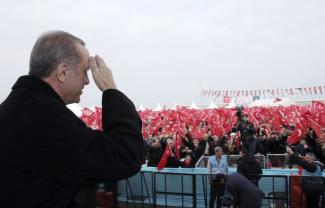Editorial
Worthless promises

In the beginning, he forged broad alliances. He needed them to reduce the undemocratic power of the army, the judiciary and the government bureaucracy. His early pluralism served Turkey well. In recent years, however, he has turned against former allies, including, most spectacularly, the Gulenist movement that was close to his own version of Islamism for a long time. Moreover, he has rekindled the civil war against Kurdish rebels. On top of all this, Turkey is now the target of ISIS terrorism. Press freedom and civil rights have been suspended. Investors are shying away, and so are tourists.
Erdogan is an unusual populist. His autocratic tendencies only began to mark Turkish governance after many years. Ever since, violence has been escalating fast.
In important ways, his approach fits the strict definition of “populism”. He claims to speak for “the” people, and feels free to define – and redefine – who exactly belongs to the people. His grand promises are not fulfillable (in his case because political stability is incompatible with strictly enforced Sunni dominance in Turkey). To justify his authoritarian rule, he constantly points out dangers and enemies. To a relevant extent, he is creating the terrorists he is fighting.
Today, a depressing number of countries is led by populists. Donald Trump in the White House means that the USA is one of them. Populists claim to promote the common good, but they are inherently divisive. They always complain that their people are being taken advantage of by others. Those others may be minorities, or some kind of “elite” or foreign countries. Conspiracy theories abound. Someone must be blamed for promises not coming true.
Populists are not fond of public debate. Discussing policy details would undermine their grandstanding. They want to give orders, not discuss. Unless they control civil-society organisations or media outlets, they resent them. When in opposition, they see corruption everywhere, but once they hold office, they try to remove checks and balances. They do not want to be held accountable.
This attitude can lead to violence – at national and international levels. And even if there is no violence, populism compounds global problems. Issues like climate protection, poverty reduction and many others require joint action, not thinking in zero-sum terms. No, one side’s gain is not always another side’s loss. Many important things can only be achieved collectively – the UN’s Sustainable Development Goals for example.
Not everything that may seem utopian at some point is indeed unrealistic. Universal access to health care, for example, is achievable. Nuance matters however. A serious health policy must spell out costs and who bears them. Compromise is needed, and there will always be trade-offs. But that is true of democratic policymaking in general of course.
To fight populists, we must insist on pluralism at national and international levels. Moreover, we must insist on discussing policy details. Promises that everything will be great are worthless.
Hans Dembowski is editor in chief of D+C Development and Cooperation / E+Z Entwicklung und Zusammenarbeit.
euz.editor@fs-medien.de








